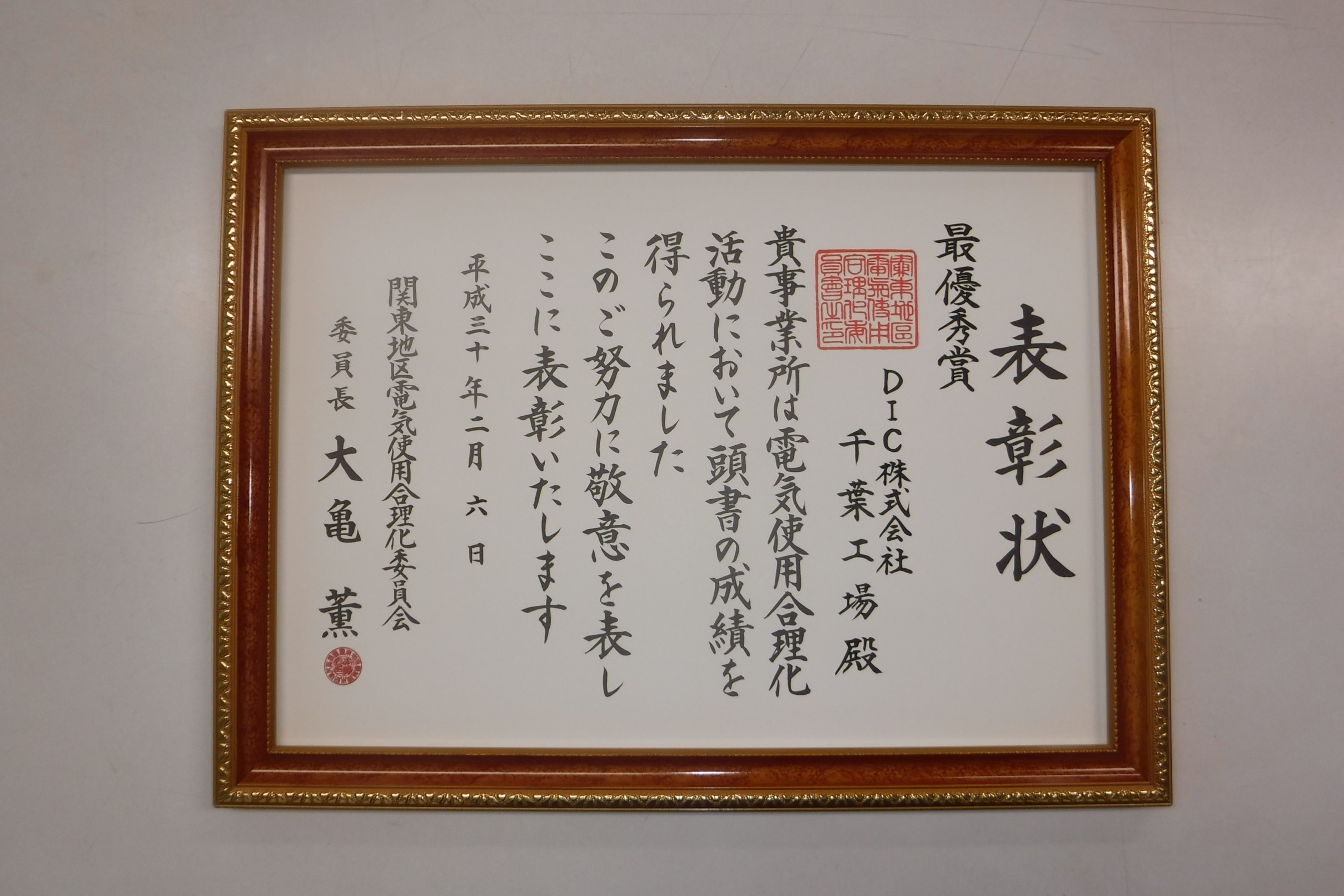DIC’s Chiba Plant Earns the Kanto Region Rationalization of Electric Power Use Committee Chairman’s Award for Fiscal Year 2018
- Sustainability
- News Release
Tokyo, Japan–DIC Corporation announced that its Chiba Plant, principally a polymer production facility, has been awarded the chairman’s award in the fiscal year 2018 Kanto Region Rationalization of Electric Power Use Committee Chairman’s Award, in recognition of effective production floor energy-saving initiatives implemented in line with the Company’s basic sustainability policy. This is the second consecutive year in which DIC has been honored with the top award. Among the plant’s 62 initiatives were the installation of an updated cogeneration system (a combined heat and power generating facility), switch to LED lighting and use of inverters in production equipment, which enabled the plant to shave its annual consumption of energy by 441 kiloliters of crude oil equivalent.
These awards are presented by the Kanto Region Rationalization of Electric Power Use Committee, a part of the Japan Electric Association Kanto Branch. The committee works to advance and publicize activities related to the efficient use of electric power and acknowledges production and other business sites that have achieved exceptional results achieved in rationalizing the use of electric power, including by promoting power conservation and improving load factor. By announcing these awards, the committee seeks to raise awareness of and encourage the rational use of electric power. Submissions are accepted in five categories: Organizational management, electric power management, facility management, efficiency improvement and energy-saving initiatives. The committee has a diverse membership, encompassing private consumers, electric power companies, electric power-related organizations and pertinent government agencies, and is organized into 10 area teams (Tochigi, Gunma, Ibaraki, Saitama, Chiba, Tokyo, Tama, Kanagawa, Yamanashi and Eastern Shizuoka).
The DIC Group has set up an energy-saving working group comprising members from each Group site to foster the exchange of information, research pertaining to new items and the Groupwide implementation of effective measures. Through a combination of site-specific and Group-level initiatives, the Group also strives to reduce its emissions of CO2. Looking ahead, the Group will continue to work as one to advance ambitious and tireless initiatives aimed at curbing its energy consumption.
-Ends-
*Note: The files are in Adobe Acrobat Format. To view them you will need Acrobat Reader.



